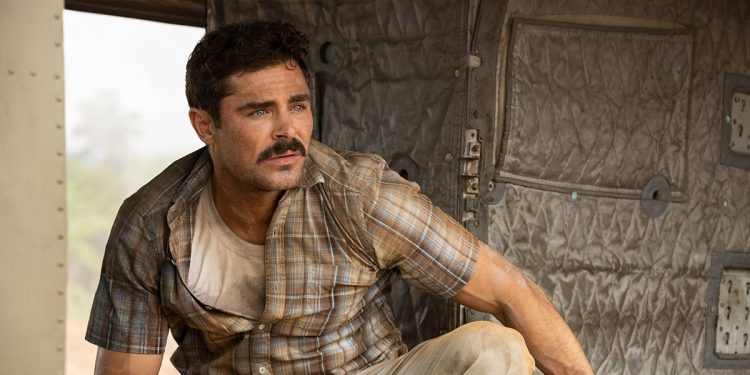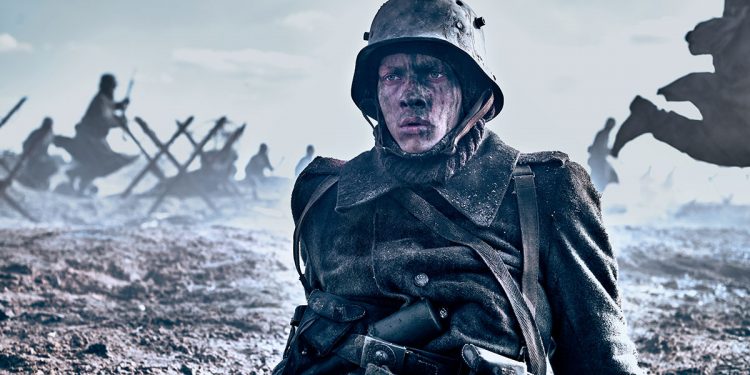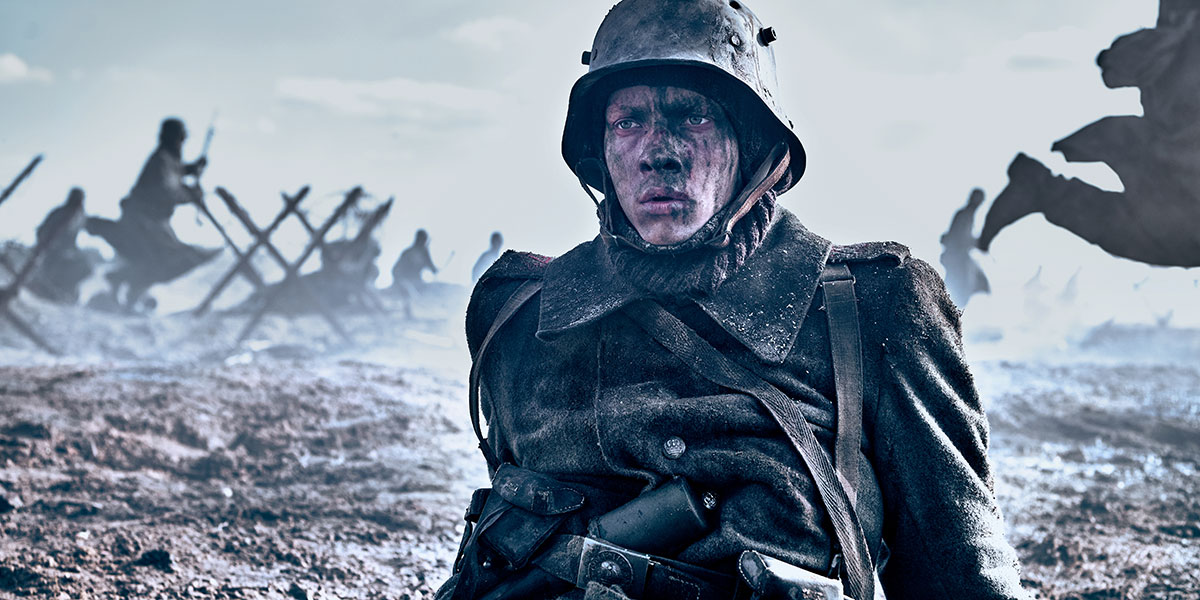At its world premiere at TIFF in September, “The Greatest Beer Run Ever” director Peter Farrelly introduced the film to audiences by giving a brief account of its journey to the screen. He invoked American politicians, and current American politics, positioning his film as one to speak to the divide in America (a dubious proposition). The moment felt false. It’s one thing for a critic to extract the social relevance of a piece of art, it feels less articulate when the director announces the film in that way absent any kind of creative urgency. To listen to Farrelly was to listen to someone introducing a self-conscious op-ed. Hearing him described the film made it sound like a message rather than an artistic work with a creative imperative. Yes, some excellent art has emerged from political necessity, but Farrelly does not have the lightness of touch or the articulation of spirit to inspire such a feat and “The Greatest Beer Run Ever” feels like a self-conscious attempt at importance more than a film that stands on its own.

Farrelly’s follow-up to his successful “Green Book” finds the filmmaker returning to the semi-serious respectable outlook of his previous film. Farrelly’s 13 preceding films were broad strokes comedy, often emphasising their inherent silliness. With “Green Book”, Farrelly took a stab at the more serious aspects of life and this follow up suggests that’s his wheelhouse now. Awards wattage aside, the serious intentions of “Green Book” do little to mask a generally facile perspective on race and racism and Farrelly’s own superficial perspective on social issues. “The Greatest Beer Run Ever” follows suit. Its transparent didacticism is a poor mask for its own creative tedium, offering a take on the Vietnam War that feels both unurgent and unnecessary.
Zac Efron plays Chickie Donohue, a former Marine turned seaman, who decides to take the trek from Inwood New York to South Vietnam to deliver some American beers for the neighbourhood boys fighting in the war. The beers are meant to be a show of support to the boys, to remind them that – despite the public anti-war sentiments – the folks at home are cheering them on. This is based on a true story, so the outlandish is true to life. The improbability of this set up needs to be matched with a film that feels equally audacious, and “The Greatest Beer Run Ever” is not that film. There are several things working against Farrelly. The pre-Vietnam stretch of the film immediately establish Farrelly’s maddeningly apolitical stance. Farrelly is so caught up on trying to make a film to “bring America together”, it turns this into an exercise in speaking out of both sides of its mouth. It would be one thing if Chickie’s initial pro-war stance was at least fleshed out and developed but Farrelly is resistant to engaging explicitly with either side establishing the film’s own loose ambivalence. Farrelly also seems to misunderstand exactly what makes Zac Efron an interesting screen presence. On paper, the insouciant devil-may-care attitude of Chickie feels like it sits in Efron’s wheelhouse, but as written (with cowriters Brian Currie and Pete Jones) Chickie feels either guileless, insensible, or exhausting. It’s a hard line for any actor to make work, and Efron suffers for it.
By the time Chickie makes it to Vietnam, it becomes a case of diminishing returns. The Vietnam War has been represented in American cinema in dynamic fashion, and Farrelly has no indelible perspective – visual, philosophical, emotional or otherwise – that feels profound, or even interesting. So, we watch Efron’s Chickie moving from war zone to war zone, like a bumbling figure bringing chaos wherever he goes. The narrative thread, Chickie’s own burgeoning sense of clarity, feels too thin for the film’s two-hours to hang on to, but even as a survey of “this is what war looks like” “The Greatest Beer Run Ever” feels similarly empty. When Russell Crowe shows up as a journalist on the frontlines to school Chickie on what war means, it all feels rather pointless. What new thing is to say about war, any war, in 2022? Perhaps not much. But even the all-too-familiar knowledge that war is hell feels glib here. When Farrelly gets to something resembling the real life (and death) of war, it feels incongruous with the film’s own airless cadence. And even that unusual window into war could work if “The Greatest Beer Run Ever” did the familiar (or unfamiliar) with any level of skill. It does not. The wide shots of the warzone feel like false re-treads of actual visceral war pictures, and the moments of emotional catharsis feel forced. Every potential moment of clarity is interrupted by a knee-jerk swerve to the inane, as if Farrelly is uncomfortable with anything resembling discomfort or ambiguity. It’s all very well-intentioned and good-natured, but to what end?

How wonderful then that the new German adaptation of “All Quiet On the Waterfront,” slated for a release on Netflix later this month, feels much more energetic, nuanced, and thoughtful as a war picture even though the original novel has already been adapted to screen multiple times – most famously to rousing Oscar success in the 1930s. What new thing is there to say about war, any war, in 2022? Perhaps not much, beyond it being an unceasing hell for all involved. But if the central thesis of Edward Berger’s new film (he directs, and cowrites with Ian Stokell and Lesley Paterson) is one we know all too well, his expert excavation in painstaking scene after scene makes this war film feel essential.
Berger’s film is a punishing 147 minutes, and most of these are spent on the frontlines of World War I. The film follows a young man, Paul, who defies his parents to enlist, and goes through the worst of what a war has to offer. It would not be unusual to think of Sam Mendes recent “1917” as a companion to Berger’s film especially when Felix Kammerer (who plays Paul) looks like a German variant of George MacKay, who led Mendes’ film. But, even as “All Quiet on the Western Front” hews close to Paul’s perspective, Berger’s perspective is wide. There’s a totalism and finality that come with this perspective. Everything under James Friend’s camera seems doomed to tragedy. “God is watching us slaughter each other,” a character says late in the film, but it would be more apt to say that the destruction over the course of the film feels like it is part of a godless world. Bleakness is not just praxis here, but it is the inherent ethos of this world. It is intentional and unsparing and unsubtle in its “war is hell” thesis but then how could it not be? Every moment leads into the next, onwards and onwards to certain death.
But this is not just rote miserabilism, Berger’s sharp harnessing of the visual and sonic is exemplary. The foreboding tones of Volker Bertelmann, with a repeated chilling note that signals doom, sets up a tone of destruction that Friend’s cinematography matches. “All Quiet on the Western Front” feels majestic in its tragedy. I suspect that much of the response to the film will be: “Is this necessary?” And acknowledging my own dislike of Farrelly’s own war film I accept that. But more than its necessity, my valuation of Berger’s film is in its own individual tenacity. This is harrowingly seductive stuff, with a precision of vision that is uncompromisingly mounted. It’s a wide expanse of a movie, but even in its wideness feels sharp and thoughtful in the way it chooses to adapt the novel.
The biggest name in the cast is Daniel Brühl, who appears, in a brief role, as German politician Matthias Erzberger to lead peace talks. In one of the striking sequences, Erzberger and the Allies sit and talk and talk as the scene intercuts with the battlefield where men die (and die and die). It’s part of Berger’s unsubtle, but striking contrast of what it means to be in a war, who gets to fight and who does not. There is no room for subtlety because there is nothing subtle about assured death. And so, entire sequences play out like a horror movie where we know what will happen but are uncertain when, or how. One of Berger’s finest achievements is making the death of characters we meet only briefly feel meaningful and affecting, each death more unnerving than the last so that moments of bombs being unleashed played like jump scares with audience members covering their eyes at the premiere at TIFF. On the way out, a man said he didn’t like it. “It’s too graphic. Sometimes you don’t need to show everything.” I understand what he meant, although I disagreed. You may not need to show everything all the time everywhere, but there’s never a sense that “All Quiet on the Western Front” is luxuriating in the graphic for its own sake.
You’d think that after a dozen or two deaths, things would get monotonous and it’s here I think that “All Quiet on the Western Front” reveals its proficiency both as a technical marvel but as a philosophical one. Berger wears us down, unrelentingly so. This is exhausting to watch. But, each new wound, each new injury, each new tragedy is treated with the same element of care and sadness. Berger wants us to feel the exhaustion, but he does not shield us from the shock of the pointlessness of the deaths. Not the first, the fifth or the fiftieth. I wonder how the grandness of this will play on the small screen when it premieres on Netflix. But, I think, even a smaller screen can’t interrupt the genuine anger screaming out from every frame of “All Quiet on the Western Front”, cursing the existence of war and the lessons we refuse to learn from it.
This piece was filed as part of coverage of the 2022 Toronto Film Festival.

